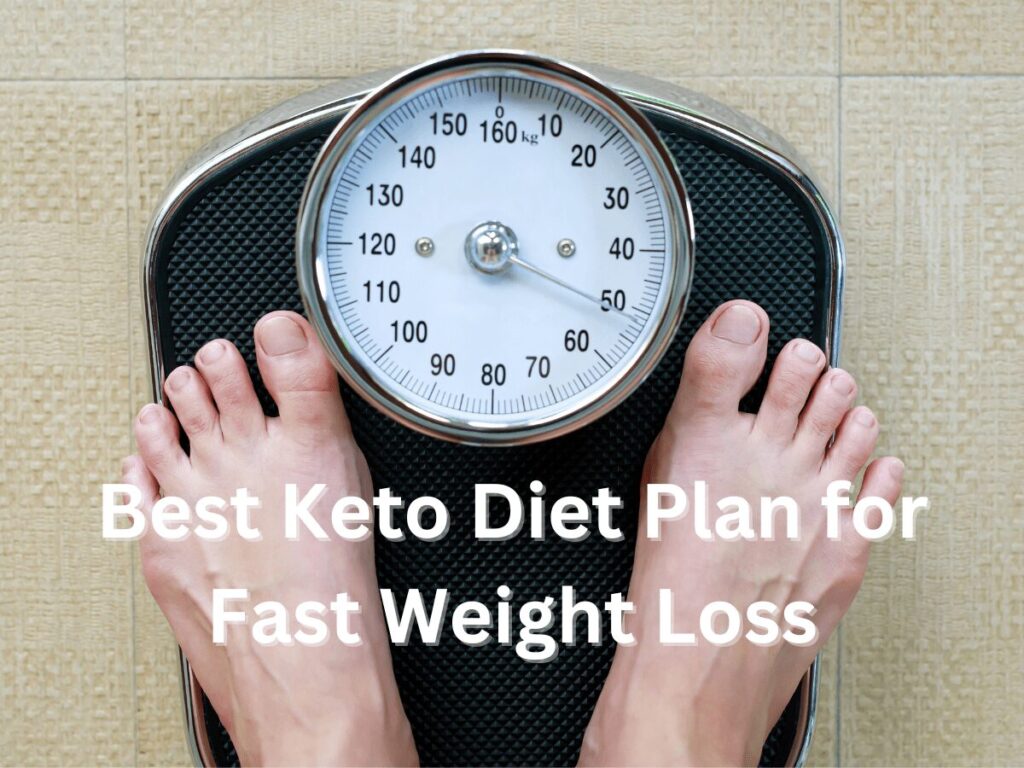This website contains affiliate links. If you make a purchase through these links, I may earn a commission at no extra cost to you. Learn More...
Are you ready to embark on a transformative journey toward rapid weight loss? If so, you’ve likely heard about the incredible benefits of the ketogenic diet. In our blog post, “Best Keto Diet Plan for Fast Weight Loss: How to Lose Weight Quickly on Keto,” we’ll delve into the most effective strategies to help you shed pounds quickly and sustainably. The best keto diet plan for fast weight loss is not just about cutting carbs; it’s about understanding how to optimize your body’s fat-burning process. Join us as we explore delicious meal ideas, essential tips, and practical hacks that will make your keto experience both enjoyable and successful. Let’s unlock the secrets of the best keto diet plan for fast weight loss together and kickstart your journey to a healthier, happier you!
What is Ketosis and How Does It Aid in Weight Loss?
Ketosis is a metabolic state that occurs when your body shifts from using carbohydrates as its primary source of energy to primarily using fat. This shift happens when carbohydrate intake is significantly reduced and fat intake is increased, prompting the liver to convert fats into ketones. These ketones then serve as an alternative fuel source for the brain and body. This natural metabolic process is the foundation of the best keto diet plan for fast weight loss.

One of the primary ways ketosis aids in weight loss is by enhancing fat burning. When you’re in ketosis, your body becomes remarkably efficient at burning stored fat for energy. This leads to a decrease in overall body fat percentage, which is often noticed after just a few weeks of adhering to a well-structured keto diet.
Additionally, the best keto diet plan for fast weight loss isn’t just about cutting carbs; it involves a careful balance of macronutrients. By emphasizing healthy fats and moderate protein, keto helps reduce hunger pangs and cravings, allowing individuals to consume fewer calories without feeling deprived. This is often referred to as “dietary freedom,” making it easier to maintain a caloric deficit – the key to successful weight loss.
Moreover, ketosis can lead to improved mental clarity and focus. With a steady supply of ketones for the brain, many people experience heightened energy levels and reduced fatigue, making it easier to stay active and engage in physical activities crucial for weight loss.

Ultimately, the science behind ketosis and its role in weight loss makes it an attractive approach for those looking to shed pounds quickly and sustainably. By following the best keto diet plan for fast weight loss, individuals can effectively harness the power of ketosis to achieve their weight loss goals while enjoying delicious and satisfying meals.
How Do I Know I’m in Ketosis?
Determining whether you’re in a state of ketosis is essential for anyone following the best keto diet plan for fast weight loss. Ketosis is a metabolic state where your body burns fat for fuel instead of carbohydrates, leading to quicker fat loss and improved energy levels. Here are some signs and methods to help you confirm if you’ve successfully reached ketosis.
1. Increased Ketone Levels: The most reliable way to know if you’re in ketosis is to measure your ketone levels. You can use ketone test strips for your urine, a blood ketone meter, or a breath analyzer. Aim for blood ketone levels of 0.5 to 3.0 mmol/L to ensure you are in nutritional ketosis.
2. Body Changes: As you commit to the best keto diet plan for fast weight loss, you might notice physical changes. These can include a reduction in appetite, increased thirst, and dry mouth. Many people also report feeling more energized after the initial adaptation period, as stored fat is broken down for energy.
3. Weight Loss: Rapid weight loss, especially in the initial stages of a ketogenic diet, can indicate that your body is utilizing ketones for energy. Keep in mind that while some of this weight loss may be water weight, a steady decrease over time is a good sign of fat burning.
4. Brain Fog and Mood Swings: Interestingly, the transition into ketosis can sometimes lead to side effects, including temporary brain fog, irritability, or mood swings, often referred to as the “keto flu.” These symptoms are usually short-lived and indicate your body is adjusting to its new energy source.
5. Bad Breath: A common symptom of ketosis is a distinct fruity or metallic smell on your breath. This is due to acetone, a type of ketone that is released through your breath when your body is in ketosis.
6. Increased Urination: As your body begins to expel excess water and electrolytes, you may find yourself visiting the bathroom more frequently. This increased urination is typical when starting the ketogenic diet and can also contribute to feelings of fatigue or dehydration.
7. Improved Physical Performance: After the initial adjustment period, many find that their endurance and strength improve as their body becomes efficient at using fat for fuel.
To successfully monitor your progress and ensure you’re getting the most out of the best keto diet plan for fast weight loss, combine these methods with consistent tracking of your food intake, ketone levels, and any physical changes. This holistic approach will help you stay on track and optimize your ketosis journey. Remember to consult with a healthcare provider before making significant dietary changes to ensure it’s safe and effective for you.
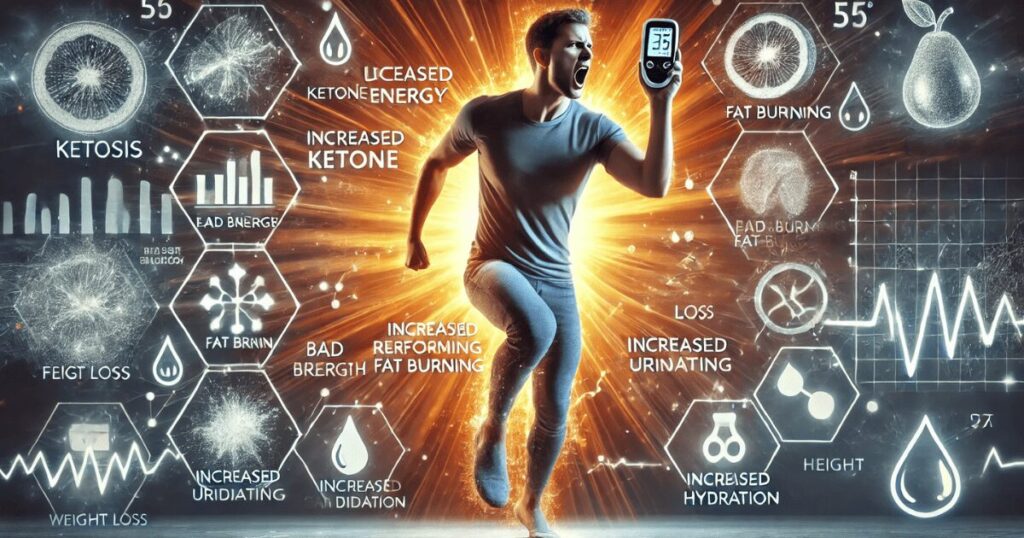
How Quickly Does Ketosis Burn Fat?
When embarking on a keto diet, one of the most compelling reasons for choosing this low-carb, high-fat lifestyle is its ability to promote rapid fat loss through the metabolic state known as ketosis. But just how quickly does ketosis burn fat, and what factors influence this process?
Ketosis occurs when your body shifts from using glucose as its primary energy source to utilizing fat. Once you reduce your carbohydrate intake significantly—generally to below 20-50 grams per day—the liver begins to produce ketones from fatty acids, which become the preferred fuel for your body and brain.
Speed of Fat Loss in Ketosis
The speed at which ketosis burns fat can vary significantly from person to person. On average, many individuals may begin to notice fat loss within the first week of adhering to a strict ketogenic diet. This initial weight loss is often attributed to water weight due to glycogen depletion. However, as the body adapts to ketosis, fat burning becomes more efficient.
In the subsequent weeks, many people experience steady fat loss, often ranging from 1 to 2 pounds per week, depending on their metabolism, activity level, and adherence to the diet. Some individuals may experience even faster results, particularly during the initial stages. Overall, during the early phases of the ketogenic diet, you may experience noticeable results in just a few weeks.
Factors Influencing Fat Burning in Ketosis
Several factors can affect how quickly you burn fat in ketosis:
1. Individual Metabolism: Everyone’s metabolism is different, influenced by factors like age, gender, genetics, and overall health.
2. Caloric Deficit: While ketosis promotes fat burning, maintaining a caloric deficit is essential for weight loss. Consuming more calories than you burn will impede progress.
3. Exercise: Incorporating regular physical activity can enhance fat oxidation and help maintain lean muscle mass, further encouraging fat loss.
4. Type of Fat: Including healthy fats like avocados, nuts, and olive oil can improve metabolic processes and contribute to more effective fat burning.
5. Hydration and Electrolytes: Staying well-hydrated and ensuring adequate electrolyte intake can minimize side effects (commonly referred to as “keto flu”) and enhance your body’s efficiency in fat metabolism.
Best Keto Diet Plan for Fast Weight Loss
To optimize your fat-burning potential while following a keto diet, consider the following tips:
– Plan Your Meals: Structure your meals around high-quality fats (like coconut oil and grass-fed butter), moderate amounts of protein (such as chicken, fish, and eggs), and low-carb vegetables (like greens and cruciferous vegetables).
– Be Mindful of Snacks: Choose keto-friendly snacks like nuts, cheese, and celery with cream cheese to keep you satisfied without overshooting your daily carb limit.
– Track Your Macros: Use a food tracking app to monitor carbohydrate, fat, and protein intake, ensuring you stay within the recommended ranges for a successful ketogenic experience.
– Intermittent Fasting: Consider incorporating intermittent fasting, which may boost ketone levels and further enhance fat-burning during ketosis.
By following a well-structured keto diet and understanding how your body responds to ketosis, you can maximize fat-burning efficiency and achieve your weight loss goals more rapidly. Remember, consistency is key, and with perseverance, the results will come.
What Fat Does Keto Burn First?
On a ketogenic diet, the body enters a state of ketosis, where it primarily burns fat for fuel instead of carbohydrates. The specific sources of fat that the body burns first can vary based on several factors, including individual metabolism, body composition, and dietary habits. However, generally speaking, the body tends to burn the following types of fat:
1. Stored Body Fat: Initially, the body will start to utilize stored fat in adipose tissue for energy as it depletes glycogen stores (the stored form of carbohydrates).
2. Fatty Acids: When in ketosis, the liver converts fatty acids from stored fat into ketones, which serve as an alternative energy source for the brain and muscles.
3. Dietary Fat: The fat consumed in the diet also becomes a source of energy. In a well-formulated ketogenic diet, dietary fats are the primary energy source as the body becomes efficient at using fats rather than carbohydrates.
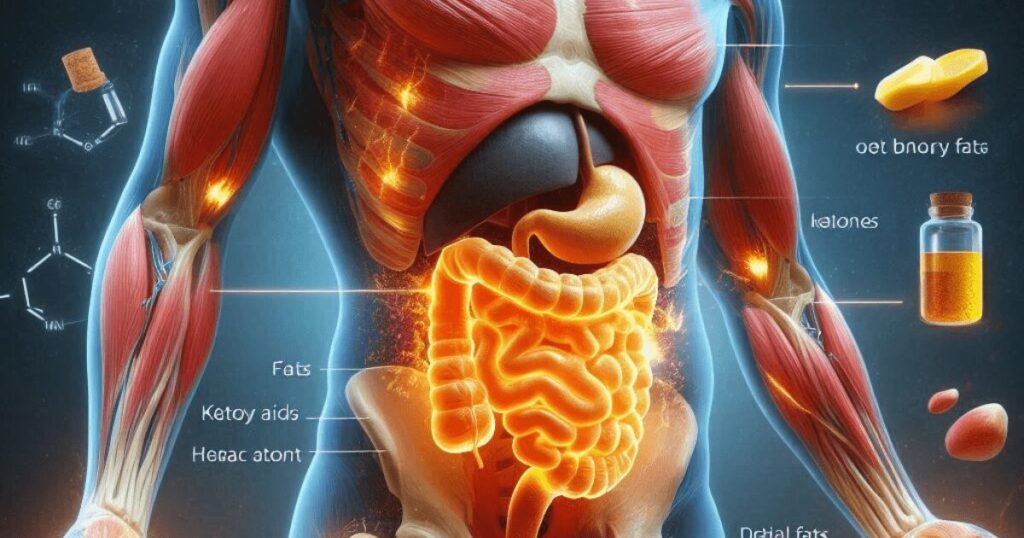
It’s important to note that the body does not selectively burn a particular type of fat first; rather, it uses a combination of fat sources based on availability and energy demands. Individual responses can vary, so the specifics can change from person to person.
How Much Weight Can You Lose in 7 Days on Keto?
If you’re following the best keto diet plan for fast weight loss, you may experience significant results in just one week. Many people report losing 5 to 10 pounds, depending on their starting weight and adherence to the diet. The key is sticking to low-carb, high-fat meals that promote ketosis.
To maximize your weight loss on the keto diet, focus on incorporating healthy fats like avocados, nuts, and olive oil while eliminating sugary and starchy foods. Meal prepping can help you stay on track, and drinking plenty of water is essential to prevent dehydration and curb hunger. Regular exercise can further accelerate results, making this diet not just a method for quick weight loss but a sustainable lifestyle choice.
How Much Weight Can You Lose in 1 Week on Keto?
The ketogenic diet often hailed for its rapid weight loss benefits, can lead to impressive results in just one week. Many individuals exploring the best keto diet plan for fast weight loss often wonder how much they can realistically expect to lose during this initial period. While results can vary based on factors such as starting weight, adherence to the diet, and physical activity levels, it’s not uncommon to see a significant drop in water weight during the first few days. This is primarily due to reduced carbohydrate intake, which leads to a decrease in glycogen stores and subsequent water loss.
On average, individuals may lose anywhere from 2 to 10 pounds within their first week on keto. As you adopt the best keto diet plan for fast weight loss, it’s essential to combine it with healthy lifestyle practices, including adequate hydration and exercise, to maximize results. Keep in mind that while the initial weight loss can be encouraging, sustainable and long-term success on keto requires ongoing commitment and dietary adjustments.
Ultimately, the first week can act as a motivating kickstart for your weight loss journey on the ketogenic diet, setting the stage for the continued fat-burning benefits that lie ahead.
Can You Lose 5kg In a Week On Keto?
While it’s possible to lose 5kg in a week on the keto diet, it’s often not purely fat loss. Initial weight loss can be attributed to dehydration and glycogen depletion, as the body shifts to burning fat for fuel. Sustainable weight loss typically occurs at a slower rate, around 0.5 to 1 kg per week. It’s essential to approach any diet with realistic expectations and focus on long-term health rather than rapid weight loss.
Can You Lose 2kg a Week On Keto?
Losing 2kg per week on a keto diet is possible for some individuals, especially in the initial stages. This rapid weight loss often results from decreased water retention and glycogen depletion as the body transitions into ketosis. However, sustainable weight loss typically averages about 0.5 to 1kg per week over the long term. Factors such as individual metabolism, activity level, and adherence to the diet play crucial roles in determining weight loss results. Remember, it’s essential to prioritize health and consult a healthcare professional before making significant dietary changes.
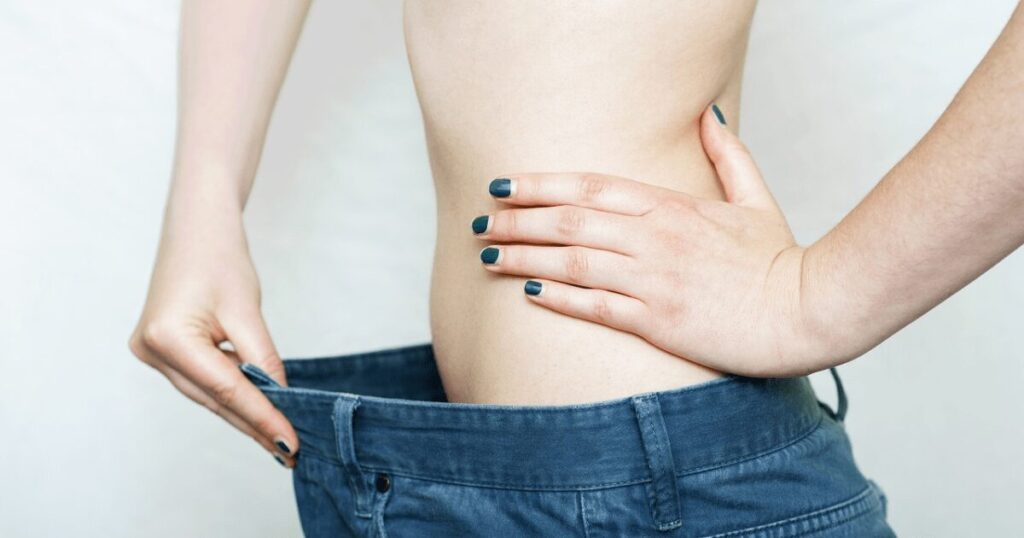
What Happens If You Eat No Carbs For a Week?
If you eat no carbs for a week, your body will enter a state called ketosis, where it starts to burn fat for energy instead of carbohydrates. As a result, you may experience initial weight loss due to water loss and reduced glycogen stores. However, you might also face side effects such as fatigue, headaches, irritability, and cravings. Additionally, a lack of carbohydrates can lead to reduced energy for workouts and daily activities, as your body adjusts to this significant dietary change. Key nutrients found in fruits, vegetables, and whole grains may also be lacking, potentially impacting overall health.
How much weight can you lose in a month with keto?
The amount of weight you can lose in a month on a ketogenic diet varies by individual, but many people report losing between 5 to 10 pounds in the first month. Factors such as starting weight, adherence to the diet, exercise habits, and metabolic rate all play a significant role. While some may see rapid initial weight loss due to water weight, sustainable fat loss typically occurs over an extended period. To maximize results, it’s important to combine the keto diet with healthy lifestyle choices.
How Much Weight Can You Lose In 3 Months On Keto?
The amount of weight you can lose in three months on a ketogenic diet largely depends on your starting weight, adherence to the plan, and individual metabolism. Many people following the best keto diet plan for fast weight loss report losing between 20 to 30 pounds in this timeframe. However, results can vary, with some experiencing more significant weight loss and others achieving slower results.
To maximize your results on the best keto diet plan for fast weight loss, it’s important to stay consistent with your carbohydrate intake, focus on healthy fats and lean proteins, and incorporate regular physical activity. By maintaining a state of ketosis, your body becomes highly efficient at burning fat for fuel, which can significantly accelerate your weight loss journey over the three-month period.
Always consult with a healthcare professional before starting any new diet plan to ensure it’s right for you.
Can You Lose 20 kg In a Month With Keto?
Losing 20 kg in a month while following a keto diet is highly ambitious and generally not considered safe or sustainable. While the ketogenic diet can lead to significant weight loss due to reduced carbohydrate intake and increased fat burning, dropping such a large amount of weight in such a short time can result in muscle loss, nutritional deficiencies, and other health risks. For sustainable weight loss, it’s advisable to aim for 0.5 to 1 kg per week, combined with balanced nutrition and regular physical activity. Always consult a healthcare professional before starting any drastic weight loss plan.
How Long Will It Take To Lose 20kg On Keto?
When considering how long it will take to lose 20kg on a keto diet, it’s important to understand that individual results can vary significantly based on factors such as starting weight, adherence to the diet, and overall lifestyle. Typically, a well-structured keto plan can facilitate rapid weight loss, especially in the initial weeks. Many people report losing several kilograms within the first month, making it one of the best keto diet plans for fast weight loss when followed consistently.
To maximize results, it’s crucial to combine the best keto diet plan for fast weight loss with a balanced intake of nutrients, sufficient hydration, and regular physical activity. Keeping your carb intake low while focusing on high-quality fats and proteins will not only enhance fat-burning but will also help in maintaining muscle mass. While some may see significant weight loss in as little as two to three months, achieving a 20kg loss may take longer for others, depending on personal metabolic rates and adherence to the dietary guidelines.
How Much Weight Can You Lose On Keto In 2 Weeks?
In two weeks on a keto diet, individuals can typically expect to lose between 5 to 10 pounds, primarily due to initial water weight loss and reduced calorie intake from limiting carbohydrates. Actual weight loss may vary based on factors such as starting weight, adherence to the diet, and individual metabolism. It’s important to note that while rapid weight loss can be motivating, sustainable changes and long-term results are best achieved with a balanced approach.
How Do I Speed Up My Weight Loss On Keto?
To speed up weight loss on a keto diet, focus on maintaining a consistent state of ketosis by keeping your carbohydrate intake very low, ideally below 20-50 grams per day. Incorporate high-quality fats and moderate protein sources to ensure your body efficiently utilizes fat for energy. Staying hydrated, engaging in regular physical activity, particularly strength training and high-intensity interval workouts, can further enhance fat burning. Additionally, consider tracking your meals to avoid hidden carbs and monitor your progress, while prioritizing quality sleep and managing stress to support overall metabolic health.
What Foods Are Unlimited On Keto?
On a keto diet, certain low-carb foods can be consumed in unlimited quantities to maintain ketosis. These include non-starchy vegetables like leafy greens, broccoli, cauliflower, and zucchini. Additionally, you can enjoy moderate amounts of healthy fats such as olive oil, coconut oil, and butter. Meat, poultry, and fish are also encouraged, as they are low in carbs and rich in protein. However, while these foods can be eaten freely, it’s essential to maintain a balanced intake and avoid excessive portions to ensure overall health.
Learn More About Food You Can Eat On Keto Here…
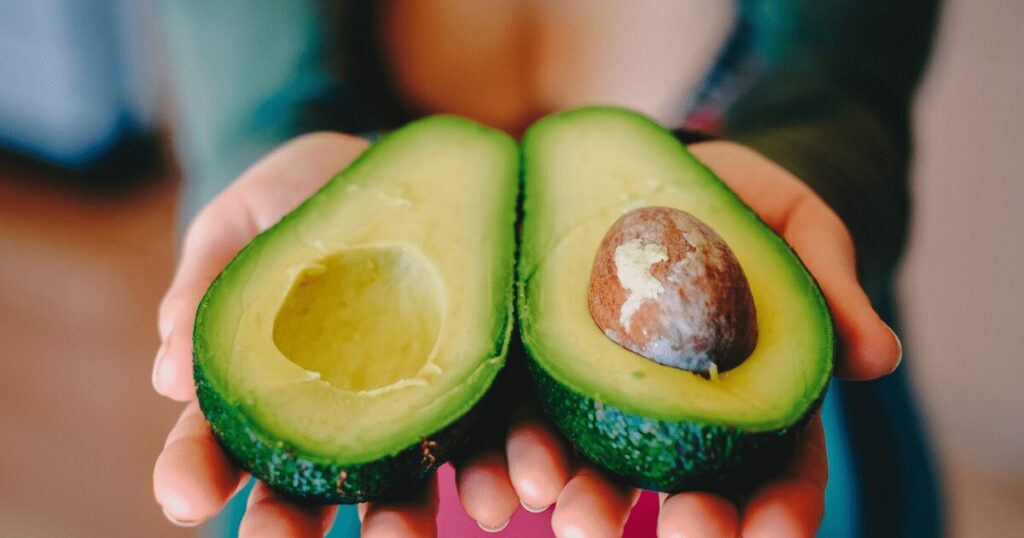
How To Jumpstart My Weight Loss On Keto?
To jumpstart your weight loss on keto, focus on reducing your carbohydrate intake to around 20-50 grams per day to enter ketosis. Prioritize whole, unprocessed foods such as leafy greens, avocados, and healthy fats from sources like olive oil and nuts, while minimizing sugars and grains. Incorporate regular exercise, including both cardio and strength training, to boost metabolism and support fat loss. Staying hydrated and tracking your food intake can also help you stay accountable and ensure you’re meeting your nutritional needs.
Does Exercise Speed Up Ketosis?
Exercise can enhance the speed at which the body enters ketosis, a metabolic state where fat is utilized for energy instead of carbohydrates. Engaging in physical activity depletes glycogen stores, prompting the body to turn to fat for fuel more quickly. Additionally, exercise may help improve insulin sensitivity and increase fat oxidation, both of which support ketosis. However, the effects can vary based on the type, intensity, and duration of the exercise, as well as individual metabolism and dietary choices.
Can I Lose 5kg In 3 Days?
Losing 5kg in just 3 days is an unrealistic and unhealthy goal for most people. While extreme diets or water weight loss may lead to quick results, these methods are not sustainable and can harm your health. A safe and effective weight loss strategy typically involves gradual changes in diet and exercise, aiming for about 0.5 to 1kg per week. For long-term results, focus on a balanced approach that promotes overall wellness rather than rapid weight loss.
How To Speed Up Weight Loss In Ketosis?
To speed up weight loss in ketosis, focus on maintaining a strict low-carb diet while increasing your healthy fat intake to shift your body into deeper ketosis. Incorporate regular exercise, especially strength training, and high-intensity workouts, to boost metabolism and burn fat more effectively. Stay hydrated, get plenty of sleep, and manage stress levels, as these factors play a crucial role in weight loss. Finally, consider intermittent fasting, which can enhance fat burning and support ketone production.
How Do I Kick In Ketosis Fast?
To enter ketosis quickly, reduce your carbohydrate intake to about 20-50 grams per day and increase your fat consumption, focusing on healthy sources like avocados, nuts, and olive oil. Incorporating intermittent fasting can also expedite the process by depleting glycogen stores more rapidly. Additionally, consider increasing your physical activity to boost the rate at which your body shifts from burning glucose to fat for fuel. Staying hydrated and maintaining electrolyte balance is essential to minimize any side effects as your body adapts to ketosis.
What Speeds Up Ketosis?
To accelerate ketosis, consider reducing carbohydrate intake significantly, typically to under 20-50 grams per day, which encourages your body to transition from using glucose to fat for fuel. Incorporating intermittent fasting can also boost ketone production, as it leads to lower insulin levels and increased fat oxidation. Additionally, engaging in regular physical activity, especially high-intensity workouts, can enhance this metabolic shift by depleting glycogen stores more rapidly. Lastly, consuming healthy fats and moderate protein while staying hydrated can further support the ketosis process.
How To Do a Fat Fast On Keto?
A fat fast on keto involves consuming a high percentage of fats, typically around 85-90% of your daily caloric intake, to rapidly induce ketosis and promote fat loss. To embark on a fat fast, focus on eating calorie-dense foods like avocados, olive oil, butter, and fatty cuts of meat, while significantly limiting protein and carbohydrates. This short-term strategy, lasting 2-3 days, helps curb hunger and kickstart weight loss by keeping your body in an optimal fat-burning state. Always consult with a healthcare professional before starting any restrictive diet.

How To Shred Weight Fast?
To shred weight quickly, focus on a combination of a calorie deficit, high-intensity workouts, and a balanced diet rich in whole foods. Incorporate strength training and cardio exercises into your routine to boost metabolism and burn fat. Stay hydrated, get enough sleep, and manage stress levels, as these factors also impact weight loss. Lastly, avoid processed foods and sugary drinks while prioritizing lean proteins, vegetables, and healthy fats for optimal results.
How To Get Into Ketosis In 24 Hours?
To enter ketosis in just 24 hours, start by significantly reducing your carbohydrate intake to around 20-50 grams per day. Focus on high-fat, moderate-protein foods such as avocados, nuts, seeds, and fatty cuts of meat. Intermittent fasting can also help speed up the process; try skipping breakfast or eating within a narrow time window. Staying hydrated and increasing physical activity will further encourage your body to switch from glucose to fat for fuel, facilitating a quicker transition into ketosis.
Will I Go Into Ketosis If I Don’t Eat For 24 Hours?
Fasting for 24 hours can potentially lead you into ketosis, as the body depletes its glycogen stores and begins to burn fat for energy. During this process, the liver converts fatty acids into ketones, which serve as an alternative fuel source. However, individual responses to fasting vary based on factors like metabolism, activity level, and previous dietary habits. While many may enter ketosis after a full day of fasting, some might take longer or may not reach this state at all.
Why Am I Not Losing Weight On Keto?
If you’re following a ketogenic diet but not seeing weight loss, several factors could be at play. First, you might be consuming too many calories or not tracking your macros accurately. Hidden carbs in foods, even those labeled “keto,” can stall progress. Additionally, stress, lack of sleep, or hormonal imbalances could impact weight loss. It’s also possible that your body has adapted to the lower carb intake, slowing down metabolism. Finally, individual differences in metabolism and lifestyle play significant roles, so it may take time to see results.
Why Am I Not Losing Weight On Keto Week 1?
If you’re not losing weight in your first week on keto, don’t be discouraged. Initial weight loss can vary widely depending on factors such as water retention, individual metabolism, and how strictly you’re following the diet. Your body is also adjusting to a new fuel source, which can temporarily stall progress. Focus on staying consistent with your carb intake, maintaining proper hydration, and getting enough sleep. Remember, weight loss is a journey, and early fluctuations are normal as your body adapts.
Why Am I Not Losing Weight On Keto Week 3?
If you’re not losing weight after three weeks on the keto diet, several factors could be at play. It’s common for weight loss to stall due to water retention, especially as your body adjusts to burning fat for fuel. Additionally, you may be consuming more carbs than you realize, or your protein intake might be too high, which can inhibit ketosis. Hormonal changes, stress levels, and even lack of sleep can also impact weight loss progress. Remember, individual body responses can vary, so be patient and consider tracking your macros closely to identify any potential issues.
Why Am I Not Losing Weight On Keto After 2 Weeks?
If you’re not losing weight on keto after two weeks, several factors could be at play. First, your body may still be adjusting to the dietary shift, with some people experiencing temporary water weight retention. Additionally, hidden carbs in processed foods, portion sizes, or even stress and sleep quality can impact your progress. It’s also essential to ensure you’re consuming enough healthy fats while maintaining a calorie deficit. Monitor your overall intake and consider giving it more time, as results can vary widely from person to person.
Why Am I Not Losing Weight On Keto After 4 Weeks?
If you’re not losing weight on keto after four weeks, several factors could be at play. First, your body may be adjusting to a new metabolic state, which can take time. Additionally, hidden carbs in foods or overeating healthy fats can stall progress. Stress, lack of sleep, or water retention might also hinder weight loss. It’s essential to track your food intake, ensure you’re in a caloric deficit, and give your body more time to adapt to this low-carb lifestyle.
How Long Should I Stay On Keto?
The duration of a ketogenic diet varies based on individual goals and health needs. Some people may follow keto for a few weeks to jumpstart weight loss, while others may stay on it for several months or longer for sustained health benefits. It’s important to listen to your body and consult with a healthcare professional to determine the right duration for you, as prolonged adherence without monitoring can lead to nutrient deficiencies or other health issues. Regularly reassess your goals to decide whether to continue, transition to a different diet, or incorporate more carbohydrates gradually.
When To Stop Keto?
When to stop keto often depends on individual health goals and personal experiences. Many may choose to transition off the ketogenic diet after reaching their target weight, improving metabolic health, or experiencing unwanted side effects. Additionally, if you find it challenging to maintain strict dietary restrictions, or if it impacts your social life or mental well-being, it may be time to reassess. Consulting with a healthcare professional is advisable to ensure a safe and healthy transition back to a more balanced diet.
How Long Is It Safe To Be In Ketosis?
Staying in ketosis can be safe for extended periods, typically ranging from several weeks to months, depending on individual health and dietary needs. Many people adopt a ketogenic lifestyle long-term without adverse effects, but it’s essential to monitor your health closely. Regular check-ins with a healthcare provider can help ensure you maintain proper nutrient balance and avoid potential complications. Adapting your diet as needed can help sustain the benefits of ketosis while prioritizing overall well-being.
Is Being In Ketosis Healthy?
The health implications of being in ketosis can vary significantly from person to person. For some, a ketogenic diet can lead to weight loss, improved blood sugar control, and enhanced mental clarity. However, it may also cause side effects such as nutrient deficiencies, digestive issues, and increased cholesterol levels in certain individuals. Long-term effects are still being studied, and consulting with a healthcare professional before making significant dietary changes is advisable to ensure safety and effectiveness.
What Are the Top 10 Keto Foods?
When following a keto diet, it’s essential to focus on foods that are low in carbohydrates and high in healthy fats. The top 10 keto foods include avocados, fatty fish, eggs, cheese, olive oil, nuts, seeds, low-carb vegetables, Greek yogurt, and coconut oil. Incorporating these nutrient-dense options can help maintain ketosis while ensuring you get the necessary vitamins and minerals for overall health.
What Foods Are Unlimited On Keto?
On a keto diet, certain foods are considered unlimited due to their low carbohydrate content and high-fat levels. These include non-starchy vegetables like leafy greens, spinach, broccoli, and cauliflower, which provide essential nutrients without spiking blood sugar. Additionally, healthy fats from sources such as avocados, olive oil, coconut oil, and butter can be consumed generously. Meats and fish, especially those rich in healthy fats like salmon and fatty cuts of beef, are also recommended. Remember, while these foods can be enjoyed in ample amounts, it’s essential to maintain a balanced approach to ensure overall health and nutrition.
What Foods Ruin Ketosis?
Certain foods can disrupt ketosis by increasing blood sugar levels and prompting the body to switch back to glucose as its primary energy source. High-carbohydrate foods like bread, pasta, rice, and sugary snacks are the main culprits. Additionally, starchy vegetables, some fruits, and processed foods containing hidden sugars can also hinder your ability to maintain ketosis. To stay in the fat-burning state, it’s essential to avoid these carbohydrate-heavy options and focus on low-carb, high-fat foods.
What Foods Are 100% Carb-Free?
Foods that are 100% carb-free primarily include animal products. Examples include various types of meat such as beef, chicken, and pork, as well as fish and seafood. Eggs and most cheeses are also carb-free. Additionally, healthy fats like oils (olive, coconut, and butter) contain no carbohydrates. For those adhering to a strict ketogenic or low-carb diet, these options provide protein and fat without any carbohydrates.
Is Greek Yogurt Keto-Friendly?
Yes, Greek yogurt can be keto-friendly, but it’s essential to choose full-fat, plain varieties with no added sugars. Typically lower in carbs than regular yogurt, Greek yogurt offers a good source of protein and probiotics, making it a suitable option for those following a ketogenic diet. Be sure to check the nutrition label to ensure it fits within your daily carb limit.

Can You Eat a Banana On Keto?
While bananas are nutritious, they are relatively high in carbohydrates, making them less suitable for a strict ketogenic diet. A medium banana contains about 27 grams of carbs, which can quickly exceed the daily carb limit for those following keto. If you’re aiming to maintain ketosis, it’s advisable to avoid bananas and opt for lower-carb fruits like berries instead.
Summary Of Best Keto Diet Plan For Fast Weight Loss
The article outlines several strategies for the best keto diet plan for fast weight loss, emphasizing the importance of significantly reducing carbohydrate intake while increasing healthy fats and moderate protein consumption. Key strategies include meal prepping to avoid unhealthy choices, focusing on whole foods, staying hydrated, and incorporating regular exercise to enhance fat loss.
For those seeking personalized guidance, try the Custom Keto Diet, which provides tailored meal plans to help you achieve your weight loss goals effectively. Embrace these strategies and start your journey toward fast weight loss with the best keto diet plan today!
In conclusion, achieving success on a keto diet hinges on three key factors: consistency, mindful food choices, and realistic expectations.
Consistency ensures that your body adapts to ketosis, maximizing fat utilization.
Making correct food choices supports your nutritional needs while keeping you aligned with your goals.
Finally, managing expectations is crucial – understanding that results may vary and that progress takes time can help sustain motivation. Embrace these principles to make your keto journey both effective and sustainable.


